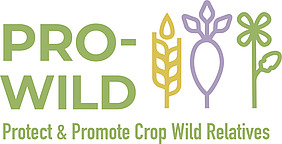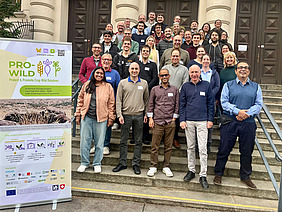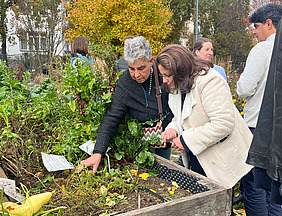The PRO-WILD consortium met in Vienna in October for its first annual meeting – an important milestone to review the achievements of the first project year and to plan the next steps. The event was hosted by the University of Natural Resources and Life Sciences, Vienna (BOKU), and brought together partners from across Europe working to protect and use crop wild relatives for more resilient agriculture.
FiBL's contribution: communication, dissemination and stakeholder engagement
Over three days, participants shared progress in areas such as in-situ and ex-situ conservation, pre-breeding, and stakeholder engagement. FiBL contributed by presenting the progress in communication and dissemination in the first year and by running an interactive workshop with the scientific partners to identify themes and formats for upcoming communication materials. In addition, a stakeholder workshop prepared partners for their first stakeholder meetings. FiBL supports them in connecting with local networks – mainly plant breeders – to exchange experiences on how crop wild relatives can contribute to future-proof crops.
Highlights from the first project year
The meeting highlighted the strong collaboration and interdisciplinary exchange that drive PRO-WILD forward. The project has already achieved important steps and results, including
- In-situ conservation: mapping native ranges of 19 target species and starting genetic and ecological analyses.
- Ex-situ conservation: building integrated datasets and dashboards for European gene bank collections.
- Pre-breeding and diversity use: first crosses and field trials showing promising traits for stress tolerance.
- Communication and outreach: launching PRO-WILD's communication channels and developing the first tools to link science and practice.
PRO-WILD will continue its work to connect science and practice, aiming to make wild crop relatives part of Europe's sustainable agricultural future.
Author: Nina Gallmann
Further information
Contact
Links
- pro-wild.eu: Project website
- zenodo.org: Collection of the documents created during the project
- linkedin.com: PRO-WILD on Linkedin
- bsky.app: PRO-WILD on Bluesky
- youtube.com: PRO-WILD on Youtube






